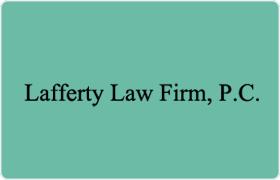Mount Pleasant Credit & Debt Lawyer, Tennessee
Sponsored Law Firm
-
 x
x

Click For More Info:
-
Lafferty Law Firm, P.C.
1321 Murfreesboro Pike Suite 521 Nashville, TN 37217» view mapBankruptcy & Debt Over 30 Years Of Experience
Susan S. Lafferty is a CPA and Attorney who enjoys helping people with financial problems. She is located in Nashville, TN where she has lived for over 30 years.
800-936-9071
Sam Wantland
Corporate, Construction, Credit & Debt, Estate Planning
Status: In Good Standing Licensed: 13 Years
Sam Wantland
Construction, Estate Planning, Corporate, Credit & Debt
Status: In Good Standing Licensed: 13 Years
Thomas Hutto
Trusts, Natural Resources, Administrative Law, Credit & Debt
Status: In Good Standing Licensed: 12 Years
Thomas Mahlon Hutto
Trusts, Natural Resources, Administrative Law, Credit & Debt, Construction
Status: In Good Standing Licensed: 12 Years
Thomas Hutto
Trusts, Natural Resources, Administrative Law, Credit & Debt
Status: In Good Standing Licensed: 12 Years
Joshua David Miller
Litigation, Credit & Debt, Family Law, Federal Appellate Practice
Status: In Good Standing Licensed: 13 Years
Megan Harlan Quillen
Litigation, Administrative Law, Credit & Debt, Bankruptcy
Status: In Good Standing Licensed: 11 Years
Kenneth Brian Hay
Wills & Probate, Trusts, Elder Law, Credit & Debt
Status: In Good Standing Licensed: 31 Years
Jonathan William Davis
Litigation, Transportation & Shipping, Reorganization, Credit & Debt
Status: In Good Standing Licensed: 20 Years
 Susan Lafferty Nashville, TN
Susan Lafferty Nashville, TN Practice AreasExpertise
Practice AreasExpertise
